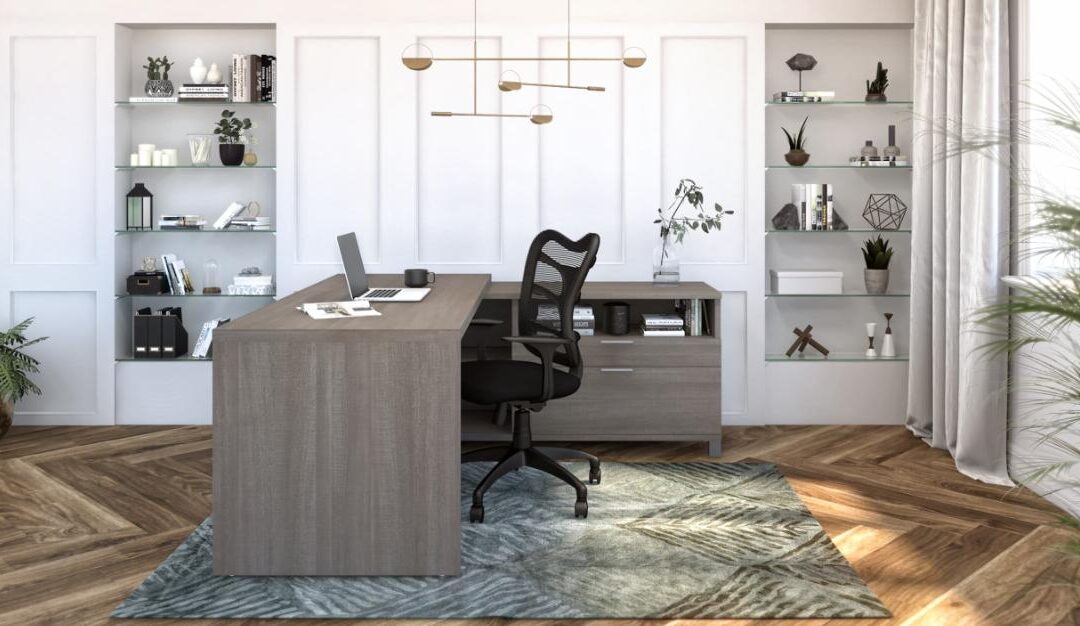In today’s increasingly remote work environment, the importance of setting up a comfortable and health-conscious workspace cannot be overstated. As experts in ergonomic design and workplace wellness, the focus of this blog post is on one of the core components of any home office setup: office desks at home. Here, we’ll guide readers through choosing the best residential office desks that not only fit their workspace but also promote health, prevent injuries, and increase productivity.
Why the Right Desk Matters
Sitting at a desk for long hours can lead to a range of health issues, from back pain to carpal tunnel syndrome. However, a properly selected office desk can help mitigate these risks. This blog provides insights into selecting office desks at home that align with ergonomic principles, thereby fostering a healthier work environment.
Understanding Desk Ergonomics
1. Adjustability is Key
Opting for residential office desks with height adjustability is crucial. Desks that can be adjusted allow for a versatile workspace that can adapt to sitting and standing, which is recommended to reduce the risks associated with prolonged sitting.
2. Size Matters
Ensuring your desk has enough space for your work essentials without causing you to overreach, which can lead to shoulder and neck strain, is vital. The ideal desk width and depth should accommodate your computer, documents, and other necessities comfortably.
3. Material and Design
The material of office desks at home does not just affect aesthetics but functionality and comfort too. Desks with a non-reflective surface can reduce glare and help in preventing eye strain.
Practical Tips for Choosing Your Desk
1. Assess Your Space
Before choosing among various residential office desks, assess the space where the desk will go. Measure the area to ensure you select a desk that fits well without overcrowding the room.
2. Consider Your Work Habits
Your desk should cater to your specific work habits. If digital technology dominates your work, ensure your desk accommodates your computer setup efficiently. Conversely, for tasks requiring a lot of written or reading work, surface area takes precedence.
3. Ergonomic Accessories
Don’t forget about accessories such as monitor stands or keyboard trays that can further enhance the ergonomic benefits of your desk setup.
Selecting the right office desks at home can significantly affect your health, comfort, and productivity. By prioritizing ergonomics and understanding your work needs, you can create a workspace that not only looks great but feels great too. Remember, in the quest for the perfect residential office desks, adjustability, size, and material play pivotal roles in promoting a healthier work environment right from the comfort of your home.

